T-Mobile ISP Reddit Reviews: What Users Are Saying About T-Mobile's Internet Availability and Speed
T-Mobile’s entry into home broadband has sparked much discussion online. Launched in 2020, T-Mobile 5G Home Internet uses T-Mobile’s wireless network and gateways to deliver unlimited data without contracts. It promises easy setup and “lightning-fast” speeds in many areas. But real-world performance can vary. In this post we comb through Reddit threads (and other user reports) over the past year to see what customers really say about T-Mobile’s internet service – both home internet and mobile data plans. We highlight common themes on coverage/availability, actual speeds, reliability/outages, customer support, and regional differences. Along the way we’ll note both praise and complaints. Our goal is an honest, practical look at T-Mobile’s ISP service through the eyes of everyday users.
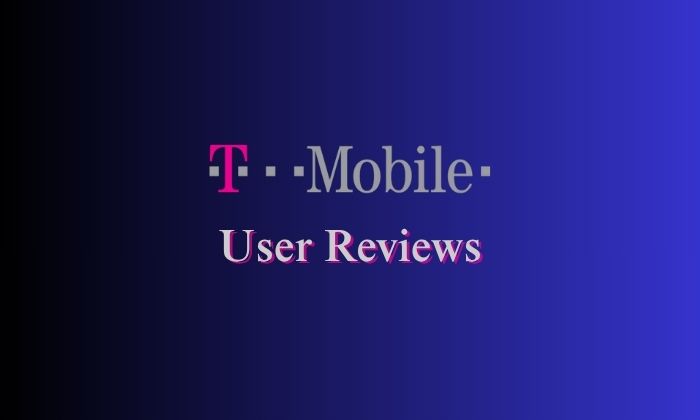
T-Mobile Home Internet Plans at a Glance
T-Mobile offers three fixed broadband plans, all with unlimited data and no annual contracts. These differ in price and hardware. The “Rely” plan (base tier) costs $50/mo ($35/mo with a T-Mobile phone line). The “Amplified” plan is $60/mo ($45 w/ a line). And the premium “All-In” plan is $70/mo ($55 w/ a line). All plans include a 5G gateway device (Wi-Fi 6 router) and features like standard security. Amplified adds a newer 5G gateway and extra perks, while All-In includes streaming perks (Hulu/Paramount+) and mesh Wi-Fi extenders.
|
Plan |
Price (AutoPay) |
Max Speeds (Symmetric) |
Unlimited Data |
Key Extras |
|
Rely |
$50/mo ($35 w/ phone) |
up to ~300 Mbps |
Yes |
Standard gateway (Nokia); basic service |
|
Amplified |
$60/mo ($45 w/ phone) |
up to ~500 Mbps |
Yes |
High-performance gateway; advanced security; TechPro support |
|
All-In |
$70/mo ($55 w/ phone) |
up to ~1000 Mbps (1 Gbps) |
Yes |
Includes Hulu/Paramount+; mesh AP; full perks |
These speeds are theoretical maximums. In practice, typical download speeds range well below those caps – often in the 100–400 Mbps range. T-Mobile notes that “All-In or Amplified” customers see typical speeds 134–415 Mbps down (12–55 Mbps up) and 25% of users can be below those ranges. Customer reviews echo this variability: some Redditors report 100–300 Mbps most of the time, while others see 400–700+ Mbps in favorable conditions (as we’ll discuss).
Overall, T-Mobile’s home internet is praised for its easy setup and no data caps, but users should understand it’s a fixed wireless service – performance depends on your local 5G coverage and network load. In areas with strong 5G Ultra Capacity, many users enjoy high speeds and stable service; in more marginal areas or under heavy traffic, speeds can dip.
T-Mobile Internet Speed and Performance: Reddit Discussions
Reddit users report a wide range of experiences with T-Mobile’s home internet speeds – reflecting differences in location, plan, and network congestion. Many threads on r/tmobileisp and other subreddits discuss speedtests. Here are some recurring points:
-
Solid speeds for streaming/browsing. Numerous users say T-Mobile easily handles video streaming and typical home use. For example, one user on the Amplified plan shared they consistently get ~400 Mbps down and 70 Mbps up, enough for multiple 4K streams. Another reports 150–300 Mbps down (with 25–35 Mbps up), which supports five people streaming and browsing without issues. A customer with no other broadband option (remote area) rated T-Mobile an “absolute blessing,” getting speeds 10x faster than their old satellite link. Many praise the “lightning-fast speed” in areas with good 5G coverage.
-
Speeds vary by plan and location. Users stress that results depend on where you live and which gateway you have. In general, people on Amplified/All-In plans with the newer gateway tend to see higher peak speeds than basic Rely users. For instance, in a rural Ohio location one Amplified user averages 500–700 Mbps off-peak and ~250 Mbps during busy times. But a neighbor only a few miles away might get slower speeds if their tower’s capacity or 5G bands differ. As one Redditor succinctly put it, “service performance is heavily dependent upon your location.” They noted that just 5–10 miles can mean the difference between full 5G Ultra Capacity or only Extended Range, yielding vastly different speeds. In short, if you’re in a dense urban area with strong 5G Ultra, expect higher performance; if you’re on the edge of coverage (or on older 4G/Extended Range 5G), speeds may be more modest.
-
Peak and off-peak differences. Many comment on fluctuations with network usage. It’s common to see very fast speeds late at night or off-peak (300–700 Mbps or more), but lower speeds during daytime/primetime. For example, one Amplified user in a suburban area said they get ~500+ Mbps down off-peak, but around 250 Mbps during busy hours. A few users suspect throttling or network oversubscription: one reported their speeds fell from 150–180 Mbps down to ~80 Mbps suddenly, wondering if T-Mobile was throttling heavy users. In congested neighborhoods (many people using TMHI), it’s noted that speeds can drop as the tower reaches capacity.
-
Wireless quirks and weather. Unlike fiber or cable, fixed wireless can be affected by environmental factors. One user in Ohio noted that on 90–100°F summer days, their tower’s equipment got so hot it “dramatically slows down speeds or basically fail[s]” for hours. Another said that cloudy weather or big rainstorms can slightly degrade performance (though often still acceptable). In general, many praise T-Mobile’s speed as good for wireless, but acknowledge it’s not as rock-solid as wired broadband. Notably, Reddit users often advise placing the gateway near a window with line-of-sight to the tower to maximize signal.
-
Mobile vs. Home data speeds. Some users compare T-Mobile Home Internet speeds to what they see on their phones. One person noted that their phone consistently hits 180–250 Mbps on 5G, similar to their home gateway speeds. Ookla Speedtest data also place T-Mobile’s mobile network as among the fastest in the U.S.. (While not the focus of this post, many T-Mobile customers appreciate that their mobile plans and hotspots also offer robust 5G data.)
Overall, speed reviews are mixed but often positive: many users find T-Mobile fast enough for HD/4K streaming and heavy browsing. Still, gamers and heavy upload users sometimes raise concerns (see below).
T-Mobile Internet Availability and Coverage
Before signing up, a key question is “Can I even get T-Mobile home internet where I live?”. T-Mobile’s website lets you check eligibility by address, and coverage has expanded rapidly – reportedly to over 40 million homes in the US. However, actual availability is still limited to select areas. Reddit users frequently discuss this:
-
Coverage map vs. reality. T-Mobile advertises 5G coverage across most of the continental U.S., noting that “most of the US is fully covered, except for highly rural and almost unpopulated areas”. In practice, coverage maps show many areas in Magenta, but not every neighborhood is eligible for Home Internet service. Rural states and outer suburbs may see gaps. For example, one user expected to qualify but found their apartment address did not, even though a nearby house did. Redditors sometimes joke that a rep will simply “use any address close by” that qualifies to get you signed up.
-
Address and registration issues. Some T-Mobile customers run into trouble when moving or trying to sign up at non-standard addresses (apartments, RV parks, etc.). T-Mobile recently tightened enforcement of address eligibility and household caps, leading to threads like “Uh-Oh: T-Mobile Will Now Enforce Home Internet Address Eligibility”. Essentially, you must have a qualifying address, and you may need to physically verify location. It’s wise to double-check coverage on the official map and read recent customer feedback: if others in your ZIP code have signed up successfully, it’s a good sign.
-
Not yet a global ISP. Note for readers in the UK, Canada, or Australia: T-Mobile’s Home Internet is currently a U.S.-only service (outside the scope of UK/Canada/Aus markets). These discussions focus on the U.S. rollout. (Those elsewhere would look to local providers, e.g. EE in the UK or Telstra in Australia.)
In summary, availability is much broader than a few years ago, but not universal. The service is strongest in suburban and rural areas where cable/fiber options are lacking – in fact, many Reddit users cited T-Mobile as their only high-speed choice (and in such cases, it’s often praised as a game-changer). If you live near a T-Mobile 5G tower and see “Available” on the map, you may be in luck. Otherwise, exercise caution and consider doing the 15-day trial (more on that below).
T-Mobile Internet Reliability and Customer Service
Beyond speed, users weigh reliability (uptime, consistency) and support experiences heavily when judging an ISP. Reddit discussions reveal a mix of praise and frustration:
-
Outages and dropouts. Many users say TMHI is reliable most days, but occasional dropouts happen. In some locales, outages have been a real pain. For example, one customer reported that for two years everything was fine, but recently began having daily multi-hour outages, especially on weekends and evenings. When they finally got through to T-Mobile, the rep hinted they weren’t even in the “official” service area and implied the customer had used an alternate address. This user complained that “customer service seems to be useless”. Stories like this underscore that when problems occur, troubleshooting fixed wireless can be tricky, and getting clear answers from reps isn’t always easy.
That said, many others say outages are rare and T-Mobile does notify users of planned maintenance. One Appalachian user noted occasional tower work but said “they always give me a timeline weeks in advance”. Another in a high-density area reported a year with essentially no problems. Generally, if service is consistent early on, users tend to stick with it – but repeated unexplained outages will drive customers back to wired ISPs.
-
Performance inconsistencies. Reliability also means “does the speed hold up over time?” Some customers have felt T-Mobile slows down or becomes unstable at high usage times. One common gripe: during rainstorms or heavy cellular traffic, performance can dip. For instance, one user mentioned “cloudy days seemed to hinder performance just enough” to notice. Another Redditor found that peak evening hours on weekends gave spotty performance.
Many users recommend power-cycling the gateway (sometimes daily) to maintain a fresh connection, which can help when congestion builds. A number of tech-savvy commenters even suggested using smart plugs to reboot the router at 4 AM each night to clear any bottlenecks – a trick they say often solves weird slowdowns.
-
Gaming and VPN issues. Heavy users (gamers, remote workers) sometimes face struggles. Several reviewers specifically pointed out that T-Mobile’s network can have high latency/ping and occasional glitches for gaming or VPNs. One redditor who relied on a VPN-laden remote work setup said Microsoft Teams calls became “super buggy” and laggy; after long back-and-forth with IT, they switched back to fiber. They noted: “ping issues with VPNs and online gaming… tends to be one of the largest complaints with 5G home internet.”. Another was told that home service isn’t intended for static-IP needs, and that a business plan with static IP is the only fix for VPN use. Gamers also weigh in: some say gaming is mostly fine at 50–100 ms ping, but fast-paced FPS can suffer at higher latency.
-
Customer support experiences. Reviews of T-Mobile’s support are all over the map. On one hand, T-Mobile is known for 24/7 support and no contracts, and some users praise their CS reps. One Redditor said they had “some of the best customer service in recent memory” when they had a setup hiccup. T-Mobile’s JD Power awards also highlight high satisfaction for home wireless broadband. On the other hand, others complain of endless phone menus, rude reps, or unhelpful answers (e.g. implying the customer cheated the address eligibility). A Cybernews roundup notes that customer support ratings are “mixed”: some customers report long wait times and unresolved issues.
In practice, if your service works well, many users say they seldom need support. But when they do (moving, cancellation, technical fault), experiences vary. A few warn that canceling TMHI can be a hassle: one user found it impossible to cancel in person, being told only a phone call could do it. Bottom line: expect the usual joys and pains of a big ISP’s support department – sometimes very friendly and helpful, sometimes frustratingly bureaucratic.
Regional Variations and Customer Stories
Across Reddit, location seems to be the single biggest factor in user satisfaction. Here are illustrative examples from different regions:
-
Remote/Rural Success: Users in deep rural areas often rave about T-Mobile bridging the gap. The Appalachia Redditor above lived where his only other options were satellite or cell hotspots. He reports “from day one it’s been an absolute blessing”, with download speeds far exceeding his old HughesNet (10× faster) and enough capacity to run multiple 4K cameras, TVs, and gaming machines simultaneously. He rarely sees weather-related drops and had minimal outages, earning a grade of A- for TMHI.
-
Suburban Edge Cases: In mid-sized towns or outskirts, reviews are mixed. One Northwest Ohio user saw 200–400 Mbps in spring/fall, but in summer heat had days of 8+ hours with no service (tower electronics overheating). A couple of neighbors on different fixed wireless systems experienced the same summer downtime, suggesting it was a tower issue (and one later saw relief after infrastructure upgrades). Another suburban user happily cut the cord on cable, got ~260 Mbps down (comparable to his old 400 Mbps cable plan) and enjoyed streaming; his only caveat was to try the 15-day trial and find the best location for the gateway antenna.
-
City vs. Surroundings: Even within the same metro area, experience can differ. A Reddit comment summed it up: “This service is really hard to review because it’s going to be based on where you live… 10 miles down the road this service isn’t even offered”. In dense cities, true wired fiber or cable often outperform TMHI, but in their absence, T-Mobile can still be surprisingly good. Conversely, in some urban neighborhoods T-Mobile is heavily congested by now, and speeds might tumble in evenings. It’s wise to see if friends or neighbors have it, or ask online locals about their speeds.
-
Legacy Wireless vs. 5G: Areas upgraded to T-Mobile’s new 5G “Ultra Capacity” towers generally see better throughput than places on the old LTE or mid-band 5G. Users frequently notice a jump when T-Mobile upgrades the cell site. For example, one person wrote that after a fiber company laid a new backhaul (making the tower Ultra 5G), T-Mobile speeds “noticed a big boost”.
Pros and Cons from User Feedback
Based on what Redditors are saying, here’s a balanced summary of pros and cons of T-Mobile internet:
|
Pros |
Cons |
|
· Fast 5G Speeds: In good coverage areas, users often get hundreds of Mbps. Many highlight “lightning-fast” download speeds for streaming, gaming, and downloads. This is especially valuable where cable/fiber isn’t available. · Unlimited Data / No Contracts: Users love no data caps. You can stream, game, or video-conference without worrying about hitting a cap (aside from the 1.2 TB soft priority threshold). The flexibility of no annual contract is also appreciated (easy to cancel or trial). · Easy Setup: Most customers say self-install is straightforward – plug in the gateway and follow the app instructions. Cybernews notes “easy setup” as a common praise, echoed by users who find the process painless compared to traditional ISPs. · Competitive Price: For the speeds delivered, many commenters say the cost is reasonable. The price guarantee (no rate hikes for 5 years) also gives peace of mind. Several users mentioned they felt they were saving money compared to cable. · Backup Internet: Some users with existing service keep TMHI as a backup (or vice versa). Even for those primarily on cable/fiber, having T-Mobile as an emergency alternative is appealing – and T-Mobile even offers a cheaper “Backup” plan. |
· Limited Availability: Not everyone can get it. Many communities (even some suburbs) are still waiting for service. And address eligibility rules can be confusing or strict. · Variable Speeds: As a fixed wireless service, speeds depend on signal and congestion. Users note that performance can fluctuate: busy-hour slowdowns, weather blips, or even day-to-day variance. In one summary, a redditor said cellphones “have higher priority” on the towers, meaning home users may slow down if the network is busy. · Lower Upload/High Latency: Upload speeds are generally modest (dozens of Mbps), which can frustrate very active uploaders or business users. More importantly, wireless latency is higher than fiber. This means gaming lag or VPN lag is a real issue for some. Multiple users switched back to wired fiber for work-from-home due to “ping issues”. · Customer Service Mixed: While many had positive interactions, others lamented unhelpful reps or bureaucratic hurdles (especially around cancellations and eligibility). Mixed reviews of support mean you might get lucky or not when problems arise. · Hardware Quirks: The gateways are improving over time, but earlier models (like the “trashcan” Nokia) had quirks. Some users mention firmware issues or missing admin controls on the routers. T-Mobile does offer free hardware swaps, but downtime to replace equipment can be an annoyance. |
Tips for Potential Customers
If you’re considering T-Mobile as your ISP based on these user insights, here are some practical tips:
-
Check Coverage Carefully. Use T-Mobile’s eligibility checker, but also read local Reddit threads or Facebook groups to confirm people nearby are really getting the service. If it looks flaky, don’t be afraid to ask T-Mobile reps about the specific address, or try ordering and canceling within the free trial if it doesn’t work.
-
Use the Trial Drive. T-Mobile offers a 15-day trial (with gateway return) to test the service. Many Redditors recommend using this to see your real speeds and reliability at your home before fully committing. If you do cancel, follow the instructions carefully and get any prorated credits for early cancellation – some users said T-Mobile was helpful with such credits.
-
Plan Choice and Setup. If speeds matter a lot to you, consider the Amplified plan and its better gateway, especially if you see multiple 5G bands around. Placement of the gateway is crucial – try different windows or heights to maximize signal. Some users even bought external antennas (though official ones are pricey). A wired connection from gateway to your primary device (PC or wired router) can improve stability for work/gaming.
-
Be Realistic. T-Mobile is often best in under-served areas. If you live in a city with excellent fiber, TMHI is unlikely to beat that on reliability or latency. However, in many small towns and exurbs, it may outperform DSL or fixed wireless alternatives. Remember that home usage (streaming, browsing, smart devices) is usually fine on TMHI – but if your job demands low-latency video conferencing or you do a lot of large uploads, keep a backup plan.
-
Monitor Data. T-Mobile enforces a “heavy user” threshold (1.2 TB per month as of 2024) beyond which speed may be reduced. If you regularly use vast amounts of data (4K cameras, many large downloads, etc.), be aware of this limit. Luckily for most, 1.2 TB is a large allowance.
Conclusion
T-Mobile’s 5G home internet has won fans and skeptics alike. Reddit reviews reveal a fairly polarized picture: for some users (especially rural customers) it’s a lifesaver that delivers cable-like speeds; for others (particularly tech-focused or high-demand users) it can fall short in consistency and latency. In summary:
-
Pros: Most users say setup is easy, costs are reasonable, and speeds are impressive when conditions are right. There are no data caps or contracts, and T-Mobile’s extensive 5G network means service in areas that once had none. Customer support often shines in straightforward cases.
-
Cons: Speeds and uptime can vary from day to day or hour to hour. Some users have experienced frustrating outages or slowdowns, and customer service can sometimes be confusing on complex issues. T-Mobile home internet is also not ideal for latency-sensitive use (online gaming, certain VPN work) without precautions.
For potential customers: the best approach is to gather local info, take advantage of the trial period, and be prepared to adjust expectations. If you have no reliable wired broadband, T-Mobile is certainly worth trying. If you do have a cable or fiber option, T-Mobile may be a great backup or secondary service, but probably not a full replacement.
In the end, Reddit reviewers frequently advise: “It depends on your area and needs.” Check the coverage, test the signal, and read the fine print. With those steps, many people end up enjoying fast, easy home internet with T-Mobile – but it helps to go in with eyes open about the trade-offs.
References and Sources:
- T-Mobile: Home Internet Plans
- CyberNews: T-Mobile Review
- Reddit: r/tmobile
- Reddit: r/tmobileisp
Suggestions for you

How to Activate eSIM on iPhone 12 Series in US, UK, Canada and Australia
394 Views
How to Activate eSIM on Pixel 3 and Pixel 3a (Step-by-Step Guide)
766 Views
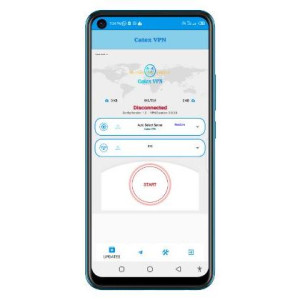
Best VPN that gives Free Data in Nigeria
244 Views

6 Cheap Data VTU Websites in Nigeria
8874 Views
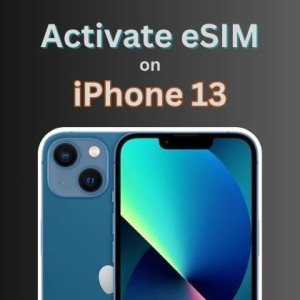
How to activate eSIM on iPhone 13 Mini, iPhone 13, iPhone 13 Pro and iPhone 13 Pro Max
492 Views

All You Need to Know About T-Mobile International Roaming
613 Views

Best rated VPN Extension for Chrome, Firefox and Edge Browsers
490 Views

Download the Best Free VPN for PC, Android and Chrome
384 Views
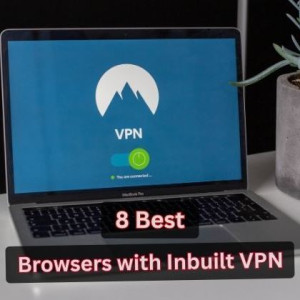
8 Best Inbuilt VPN Browsers (Free & Paid) for Secure Browsing
392 Views
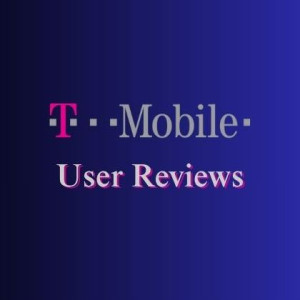
T-Mobile ISP Reddit Reviews: What Users Are Saying About T-Mobile's Internet Availability and Speed
502 Views